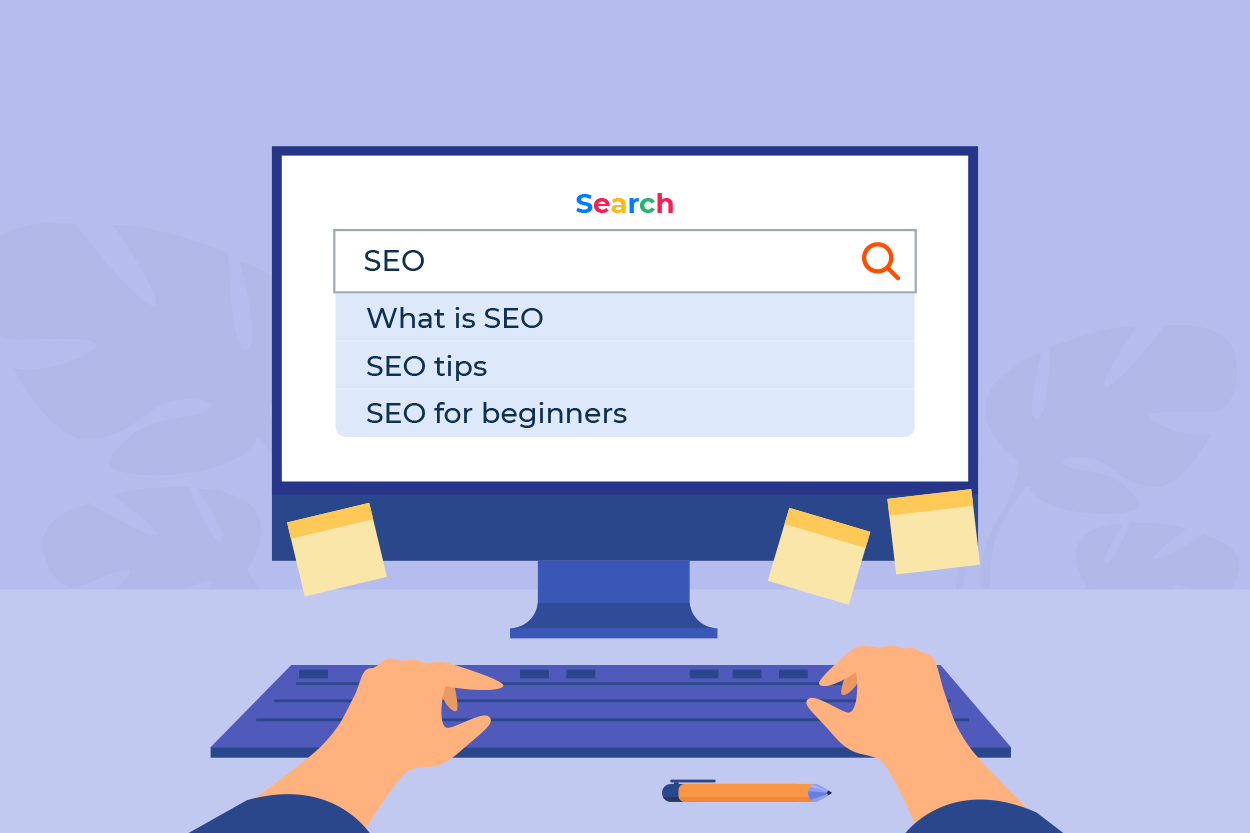

Search Engine Optimisation 101: A Beginner’s Guide

Want your site to rank on top of Google searches? Do SEO the right way!
In 2021, having a digital footprint is a must for every business. With Google being the yellow pages of the digital era, the ultimate digital goal is to appear on the first page of relevant searches.
Search Engine Optimisation (SEO) refers to the process that makes your web page better for search engines 一 optimising it, so search engines understand its value and relevance to be ranked accordingly on the search result.
So, how does one do SEO properly? Here are a few tips that can be useful:
1. Do keyword research
When you type in a word or phrase in a search engine to search articles or web pages related to it, this is considered a keyword — the main topic of your article or website that makes it possible for people to search for it online. This makes knowing the search intent of your target audience a must, so you know what they are searching for and how you can provide the content for it.
Brainstorm on possible keywords to use that are related to your business. By researching and selecting the most appropriate target keywords, your brand has the opportunity to rank well in search engines for that specific topic.
Do consider using a mix of long-tail or short keywords. A long-tail keyword is a phrase that contains three to more words, whereas short keywords are less than that; typing the word ‘SEO’ is a short keyword, whereas ‘Beginner’s Guide to SEO’ is a long-tail keyword. You probably ended up here because of searching using similar keywords mentioned.
However, shorter keywords tend to have larger search volumes, making it harder for you to rank among top searches. On the other hand, long-tail keywords mean that the user is looking for something specific, which means less search volume and competition.
UtilisUtilise tools such as Google Keyword Planner or Keyword Explorer by Ahrefs to choose the right keywords for your web pages. They can recommend keywords to optimise your site.
2. Beware of keyword stuffing
Keyword density is a foundational aspect of SEO and refers to how frequently the chosen keywords appear on a web page. Ideally, keyword density should stand at one to two percent, which means that the keyword appears one to two times per 100 words.
Doing this right helps attract search engines and boost its visibility on search engine result pages (SERP). Most importantly, it is organic reach, different from paid ones that appear on top of the page.
However, do avoid doing keyword stuffing, where you repeat the keyword every chance you get. For example, if you are advertising a dog walker service in Singapore, do not write the keywords ‘Singapore’ and ‘dog-walker’ in every paragraph. Not only is it annoying, it also disrupts the flow of the content. Ultimately you are writing for people, not a machine!
Do include your keyword in the URL, title, opening paragraph, and the image description for the article or web page. This is a far better practice than keyword stuffing to boost your SEO. As search engines become smarter, they can spot keyword stuffing tactics and lower your search ranking.
3. Include hyperlinks and backlinks
Hyperlinking your web pages to other posts and pages on your site is good because it makes it easier for users to navigate and discover related content. Aside from providing a better user experience, it also helps bots in indexing and contextualising your web pages.
Do remember to also include external links to relevant, trustworthy sites throughout your content. This is done so that Google can see your content as a credible one, an important factor for SEO.
Where possible, you should also aim to get backlinks from external sites. Backlinks are important for SEO because they signal to Google, or any other search engine, that another website finds your content valuable enough to link to it within their own.
4. Optimise your website in other ways too
In today’s fast-moving world, everything is expected to be accessible in a quick manner. Are you willing to wait minutes for a page to load? Probably not! You will immediately jump off and find an alternative — that is why page speed is a ranking factor by Google.
Make sure that your web pages are mobile-friendly — meaning it is easy for users to navigate on their smartphones, in addition to an appealing design and readable fonts.
It’s also best practice to ensure that your website has a hierarchical structure that includes tags and alternative descriptions. This will allow your web pages to be accessible to all, including differently-abled people, opening market opportunities to all segments of society.
5. Update content regularly and promote it
Just like everything else in the world, it’s paramount that your business continuously evolves to keep up with the times. Therefore, regularly updating your content with the happenings in your industry is essential to establishing your company as a trustworthy source for the public and search engines.
This is what content optimisation is; it is an ongoing process and integral part of SEO that should be done at least once a year. For instance, if you have written “Top Social Media Platforms” in 2014, Path and Vine should be taken out and be replaced with TikTok and Instagram.
Afterward, do not forget to promote and repurpose it in different formats for various channels to maximise reach and increase traffic to your site; the more people visit your website, the higher its search ranking will be. Remember to use a content calendar to help you keep track of all your ideas and assets.
Having a high ranking in Google searches is essential to ensure visibility to your existing and prospective customers. Doing SEO best practices is no longer optional but a necessity in today’s Google-dependent world. Doing it right will result in higher chances of sales and engagement.








